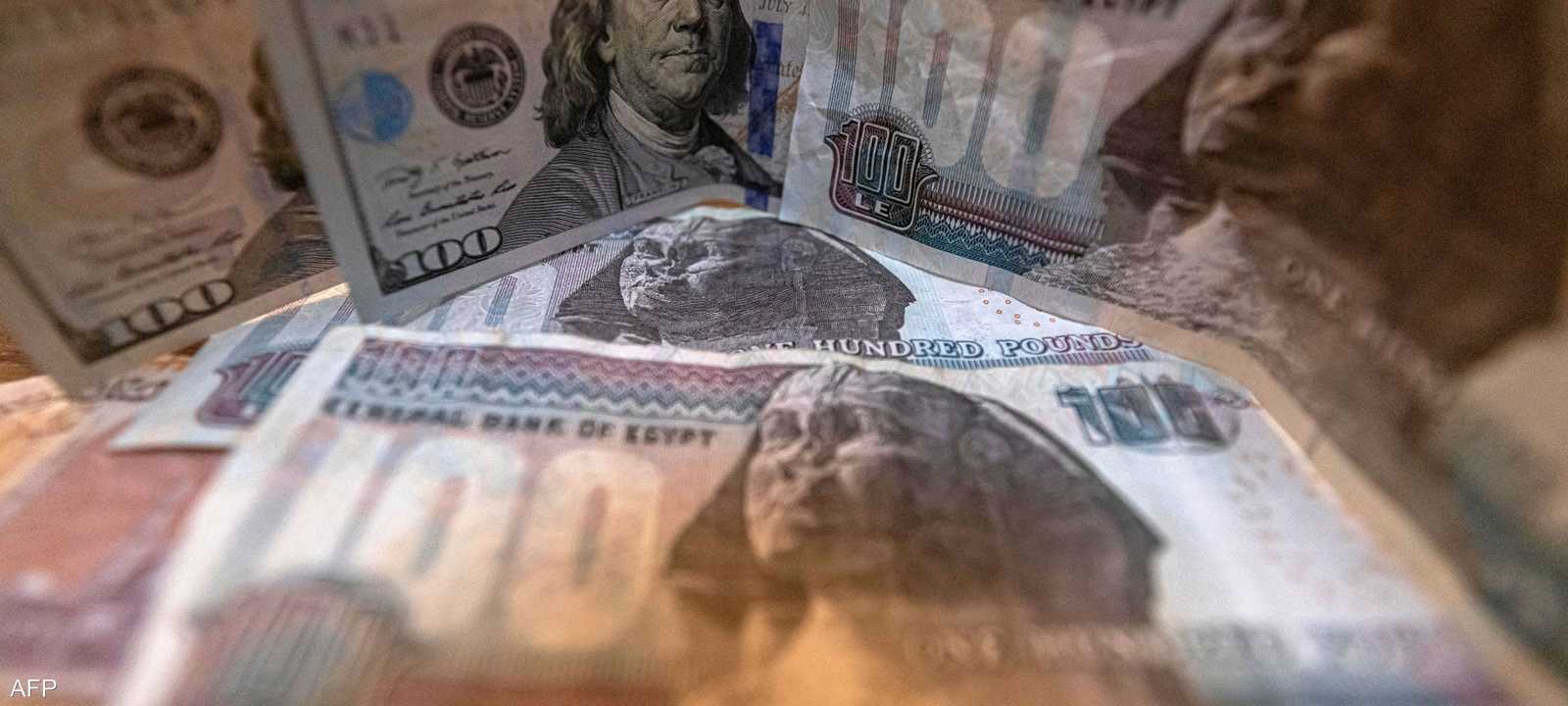
Egyptian pound and dollar banknotes
Goldman Sachs has ruled out a more flexible exchange rate for the Egyptian pound in Egypt in the coming months, given the country’s lack of dollar resources and the government’s concerns about a sharp drop in the local currency’s price.
Goldman Sachs believes Egypt is in a state of “high uncertainty” and faces a “chaotic situation” to deal with the economic crisis after experts from Bank of America visited Egypt and met with government officials and investors. its an economic crisis.
Without liquidity, the exchange rate is inelastic
The “Goldman Sachs” report reviewed by Sky News Arab Economics said the Egyptian authorities clearly believed that the transition to greater exchange rate flexibility – one of the fundamental reforms called for by the IMF – depended on providing sufficient foreign exchange reserves to cover the Manage the risk of a post-liberation exchange rate slide, given the government’s reluctance to further weaken the pound.
Goldman Sachs believes that Egypt needs more than $5 billion in foreign resources to achieve this goal.
According to the Goldman Sachs report, the government is relying on the program to sell government assets to provide this necessary stock of dollar liquidity because it prefers to sell some of those assets before the exchange rate becomes more flexible.
Plans to sell government assets are likely to accelerate, so some of them will be sold in the coming weeks, but the pace remains slow, leaving Egypt’s economic outlook constrained by the progress of asset sales, the report said.
And given that plans to sell government assets have been delayed by “structural hurdles” and undervaluation controversies, “Goldman Sachs” sees no transition to a more flexible exchange rate in the coming months, adding to international concerns Risks to IMF programs, which are considered an essential requirement for exchange rate flexibility.
“National Security”
The Goldman Sachs report was confirmed directly after a statement by Egyptian President Abdel Fattah el-Sisi that the Egyptian government would not reduce the exchange rate of the Egyptian pound to the dollar if it would affect the lives of Egyptians, considering this matter The matter is “national security.”
The official exchange rate has held steady at about 30.90 pounds to the dollar for more than three months, while the Egyptian currency has fallen to about 39 pounds to the dollar on the black market.
The IMF has yet to start a review, scheduled for March, of Egypt’s level of progress in meeting its commitments under the IMF’s agreement with the Egyptian government in December.
While sterling has fallen sharply three times since the Ukraine crisis began, foreign exchange remains scarce in the market and vital imports such as manufacturing and agricultural inputs remain locked out of the country.
Branch ring!
Goldman Sachs also said in the report that given Egypt’s inability to achieve the flexibility of the pound exchange rate, the risk of Egypt obtaining external financing remains high.
In December, the fund approved a $3 billion loan to Egypt, which has been under severe financial pressure since the outbreak of the Ukraine war.
Payments for the 46-month package are subject to eight reviews, the first on March 15, 2023, according to a staff report from the fund released in December.
The Goldman Sachs report pointed out that Egypt may need to make more adjustments to the current account to manage external financing risks.
He pointed out that there are three factors that can mitigate the risks that Egypt’s external creditors may face, including a strong willingness to pay, a reduction in external commercial debt, and a reduction in the incidence of social instability.
These factors are reflected in the existence of a strong willingness and willingness to repay debts, a relatively low trade deficit, and a low possibility of social instability.
Goldman Sachs expects Egypt to slow down the implementation of state-led infrastructure projects, which it sees as increasing pressure on scarce foreign exchange resources.
